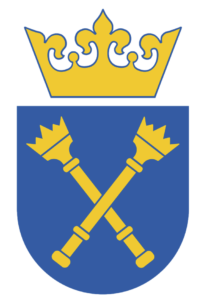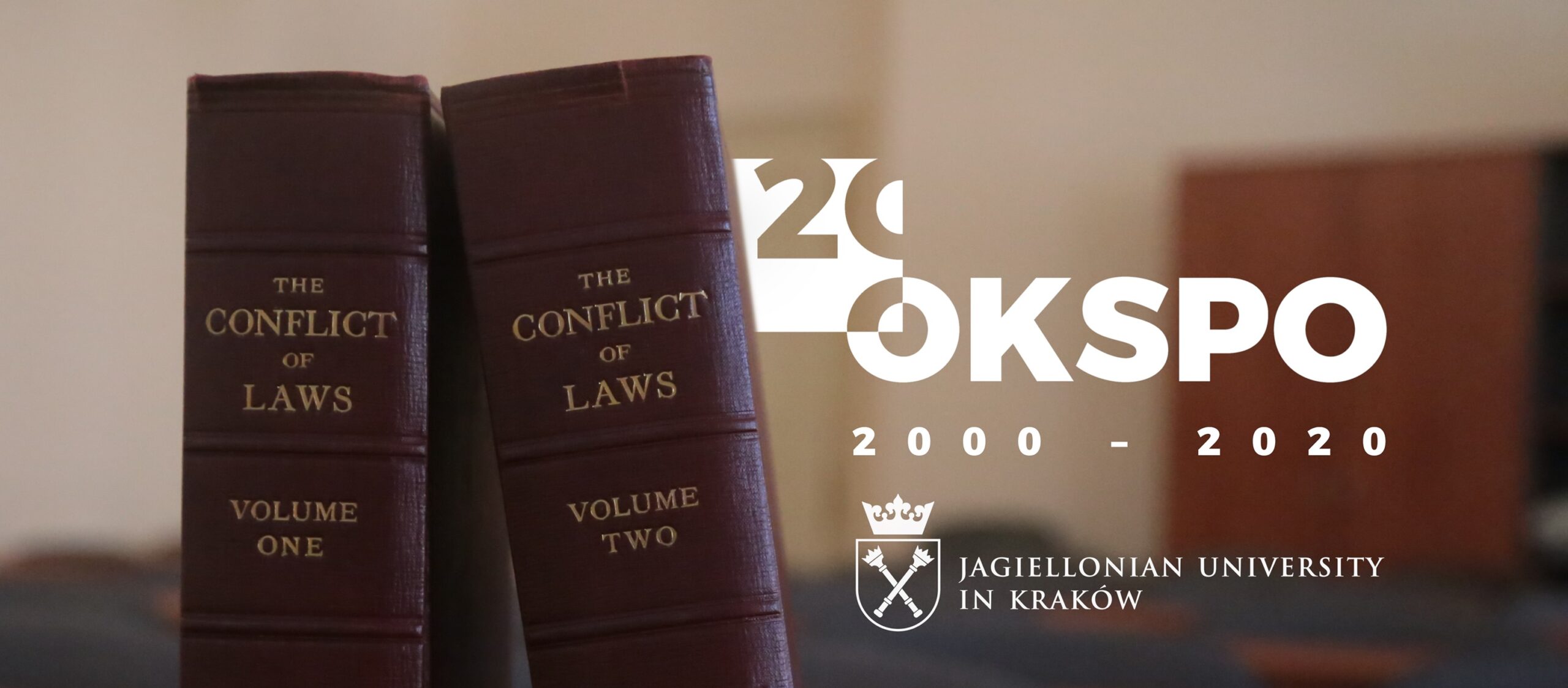sustainability
OKSPO
Coordination Center for Foreign Law Schools
sustainability
Who are we?
The aim of OKSPO (Ośrodek Koordynacyjny Szkół Praw Obcych) is to internationalize university cooperation, research foreign legal systems and provide high quality didactics. This unique unit was founded in 2000 by Prof. Fryderyk Zoll and later governed by Prof. Krzysztof Wojtyczek (2010-2012) and Prof. Krzysztof Oplustil (2012-2018). Since 2018, OKSPO is led by Prof. Piotr Szwedo.
Faculty of Law and Administration was one of the first units of the Jagiellonian University in Kraków – it has played a major part in JU’s academic activities since its establishment in 1364. It is consistently praised for its top quality of research and didactics.
Founded in 1364, the Jagiellonian University is the oldest and most prestigious university in Poland, as well as one of the oldest universities in Europe. It remains the best university in Poland, with numerous achievements of both students and researchers. Nearly 40 000 students, over 2 600 academics, more than 150 degree courses, and 16 faculties – the Jagiellonian University is a perfect place for interdisciplinary research.


Why law & sustainability?
WHILE WE PERCEIVE LAW AS A REGULATORY TOOL AIMED AT TODAY’S CHALLENGES, IT SERVES AN INCREASINGLY IMPORTANT ROLE IN THE PROCESS OF PLANNING THE FUTURE.
DIDACTICS
We coordinate numerous foreign law schools and programs, as well as courses, workshops, summer schools and lecture series. OKSPO has over 20 years of experience in effective education of law students, legal professionals, translators, and graduates of other disciplines.COOPERATION
OKSPO is a hub for international cooperation, which extends well beyond our partner institutions. Invited lectures, research projects, conferences and other collaborative activities with participants from all around the world are the heart of our Center.RESEARCH
High-quality research of modern interdependencies is closely linked to interdisciplinarity and internationalization. Exchange of facts, viewpoints and ideas has always been essential to OKSPO – we participate in various projects and publications.Current project
THE RESEARCH TOPIC
The Rights of Nature (RoN) concept is meant to challenge the anthropocentric character of law. Proponents argue that nature is not merely a resource or an aspect of our surroundings, but a value in itself – a being which should be treated as a subject of law. References to RoN have already been made in a number of legal acts, cases, and documents, despite it being still a highly disputable idea. Its implementation entails a significant redefinition of legal subjectivity, giving rise to additional dilemmas, such as the question of standing or capacity/ability to bear duties. This novel approach might be at odds with existing legal frameworks and principles, such as those related to protection of investment and more broadly: economic freedom.
In theory, operationalisation of RoN should result in a new legal toolset, better equipped to deal with related problems. Such a toolset could be an important driving force for sustainable development – a widely recognised objective and principle aimed at reconciliation of environmental protection and the socioeconomic progress. With that being said, there is doubt as to whether any useful tools can be created on the basis of RoN. The usefulness of this concept for the achievement of Sustainable Development Goals – targets enumerated in the UN 2030 Agenda – is tainted by a high number of trade-offs and the existence of other means for doing so.
The issue of emergent RoN is important; not only because RoN can challenge the foundations of legal systems, but also because we urgently need solutions to environmental problems. We cannot risk getting into further dead-ends, guided by failed legislative attempts, yet neither should we dismiss an idea merely because it seems difficult to adopt. The ongoing debate shows that we have not reached a satisfactory conclusion as to RoN, even though they are being promoted in an increasing number of contexts across various continents.
Although the state and sub-state levels of regulations are most often the subject of discussion, RoN are not contained to domestic legal systems; they can influence numerous issues of global concern, from climate change litigation to protection of areas beyond natural jurisdiction. An international and comparative law perspective is under-researched, but necessary for a thorough assessment of the concept.
Moreover, while RoN puts a spotlight on the protection of nature, the principle of sustainable development calls for balancing various goals – environmental, social, and economic. The potential impact of RoN on sustainable development is ambiguous, requiring further analysis.
THE AIM OF THE PROJECT
The subject of RoN can be described as a bundle of three types of problem: the first type is linked to the cultural and ethical roots of RoN; the second tackles the potential paradigm shifts stemming from the interplay of RoN and existing concepts; while the third type concerns the practicability of RoN, including the likelihood of its adoption and contribution to environmental protection. The aim of this project is to critically analyse these problems to determine whether the concept of RoN is an adequate, necessary, and proportional vehicle for sustainable development, capable of being successfully introduced into various legal systems.
The main research question corresponds to the title of the project. We want to establish whether the concept of RoN can and should be used as a means to achieving goals consistent with the principle of sustainable development. This question will be tentatively answered in the negative, and this answer will be assessed through the prism of international and comparative law. The proposed project will combine a rigorous analysis of the background to of RoN with a thorough assessment of the concept from an international and comparative law perspective – a novel take on this object of inquiry. The project’s aim is to provide a comprehensive critique of the concept of RoN, which will not only constitute a significant contribution to legal scholarship, but also serve as a useful resource for experts in other disciplines, especially those involved in policymaking. We intend to analyse the potential of RoN not only referring to sustainable development, but also drawing from a simulation of environmentally relevant cases.
The research builds upon the outcomes of the PHC Polonium project “Sustainability and Law. Domestic and international perspectives” (Durabilité et le droit. Perspectives internes et internationales”), financed by the Polish National Agency for Academic Exchange and Campus France. The project leaders are Piotr Szwedo (leader of the Polish team) and Pierre Serrand (leader of the French team).
Other projects
International Law of Sustainable Development
Workshop & TutoringSustainable Development & Human Rights
ConferenceLaw Against Pandemic
International projectDurabilité et le droit. Perspectives internes et internationales
International projectWe believe in cooperation
UNA Europa
Excellence Initiative at the Jagiellonian University



